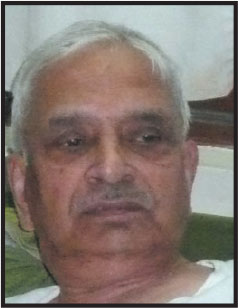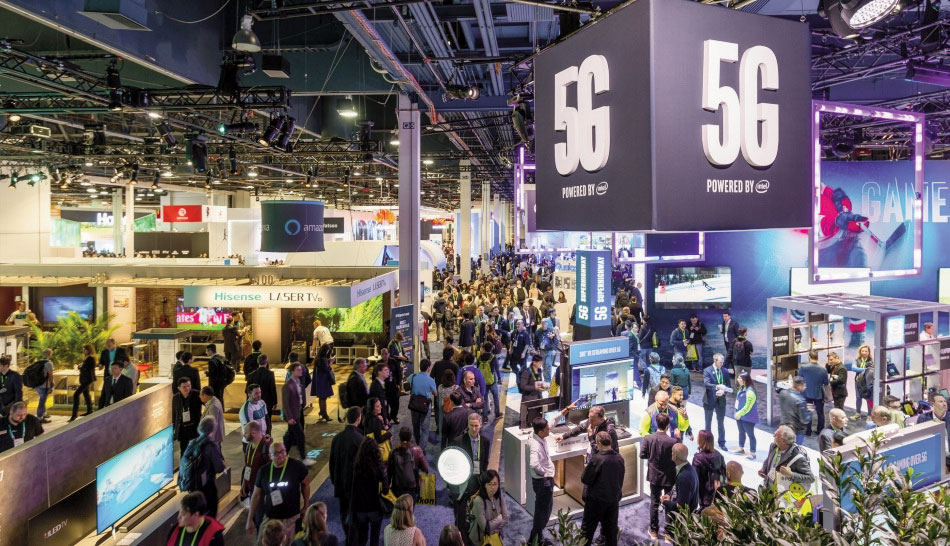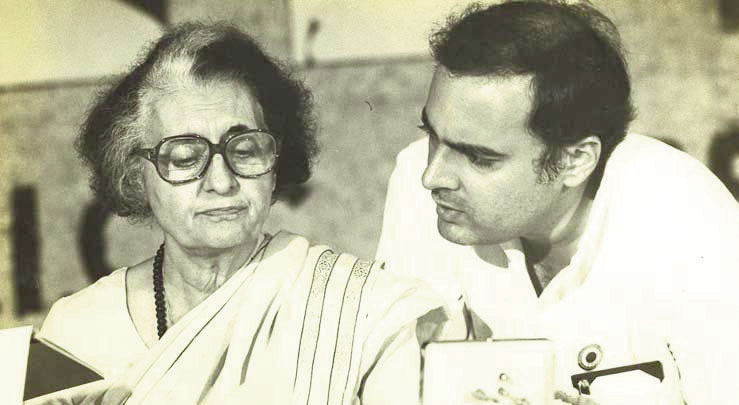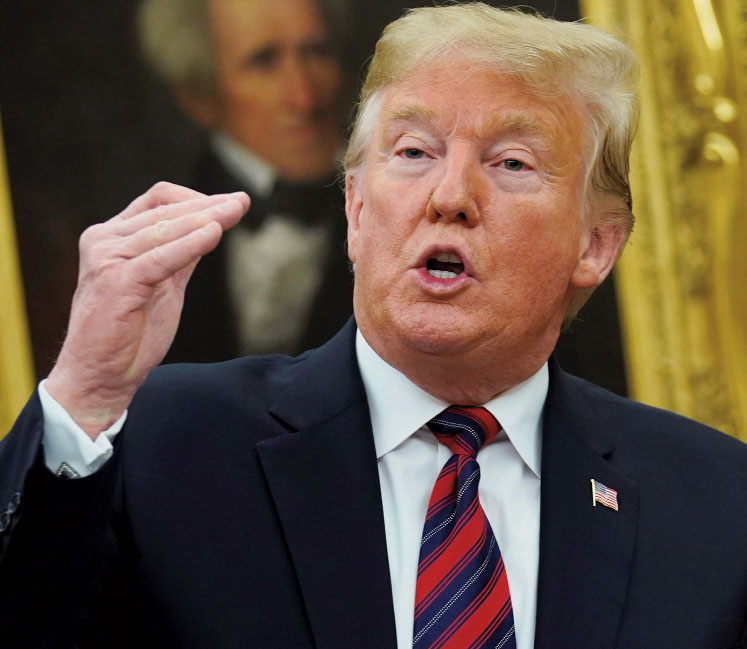Of future devices
 S. Narendra
S. Narendra
 Consumer electronics trade show in Las Vegas
Consumer electronics trade show in Las Vegas
CES 19 held in Las
Vegas USA in the
beginning of each
year is an electronic
show that is normally
thought to be only for
the geeks, ie, technology freaks.
But whatever new technology
driven gadgets are on show here
tend to enter people’s lives, and
some are as transformative as driver-less cars. Steve
Jobs of Apple used to hold his own such show and in
2007, his iphone brought about total revolution in the
way we live and work. The latest CES showcased a
few notable new technologies
which are likely to require all of
us to read just our lives to
machines that want to interact
with us.
The first technology bidding
to break out is 5G. Already
Verizon telecom service is
offering this faster Wifi in US.
Unlike 4G,LTE, this new
technology will deliver faster
WiFi with huge bandwidth
690gbps at short distances. IOT
or internet of things in which
machines or gadgets can talk to
each other, machine learning,
enabling self-driving cars to
interact with other vehicles in
traffic and pedestrian phones
are expected tp be
commonplace.
The introduction of this
technology is accompanied by two great
concerns.First relates to the imminent possibility of
driverless cars becoming more common on the roads,
requiring a readjustment of traffic rules. 5G enabled
cars are considered more safe as they are able to interact closely with their closer surroundings.
Some experts are predicting that the self-driving
feature could be fitted into any vehicle just as one
equips a music system into any vehicle. The second
concern is that China’s
Huawei is leader in
supplying 5G telecom
equipment, has already
bagged the British telecom
contract,and hopes to
supply its equipment to
India as and when Delhi
opts for 5G introduction.
The company is
suspected to be linked to
the Chinese government,
alleged to be involved in
stealing technology from
other countries. More
worrying is the suspicion
that Huawei equipment
could have bugs capable of
electronic spying.In US and
Europe the firm’s entry and
activities are closely
monitored. In fact, its
senior executive-owner was recently arrested in
Canada ona complaint by US authorities.
Five years back, no one thought
that electric cars as suitable for
India but by 2025 diesel and petrol
-run cars will have to compete with
electric or hybrid cars. In the early
1980s Indians debated about the
entry of colour television. Many
also questioned Indira Gandhi’s
advocacy of India’s space and
Ocean research programmes. And,
there were critics of Rajiv Gandhi’s
move to take India to the
computer age. Often political
choice determines the fate of
technology and innovation.
 Indira Gandhi and Rajiv Gandhi
IBM simultaneously unveiled its quantum
computer (based on quantum mechanics), the world’s
first. Cased in a 9 feet glass cube, this new computer delivers processing power that is unimaginable by
any currently available computer chip. It may not be
immediately available in shops, but it is a leap into
the future that may be ruled by AI or artificial
intelligence. This again could pose regulatory and
ethical questions.
Indira Gandhi and Rajiv Gandhi
IBM simultaneously unveiled its quantum
computer (based on quantum mechanics), the world’s
first. Cased in a 9 feet glass cube, this new computer delivers processing power that is unimaginable by
any currently available computer chip. It may not be
immediately available in shops, but it is a leap into
the future that may be ruled by AI or artificial
intelligence. This again could pose regulatory and
ethical questions.
For ordinary people, CES offered ‘hearable
devices’. When the Apple watch came out first for
self-monitoring one’s health parameters, no one took
it seriously. Copy-cats followed and made this gadget
popular. Now, Bose audio and many others have
come up with these hearable devices that deliver
music, telephone calls and other messages directly to
the hearing aid. It is claimed that this new innovation
will vastly improve the quality of life of the hard of
hearing by making them hear sounds with greater
clarity. Medical devices regulators will be called upon
to assess their usefulness and health impact.
In India we may think that such technologies and
gadgets as inappropriate and far away. Five years
back, no one thought that electric cars as suitable for
India but by 2025 diesel and petrol -run cars will have
to compete with electric or hybrid cars. In the early
1980s, Indians debated about the entry of colour
television. Many also questioned Indira Gandhi’s
advocacy of India’s space and Ocean research
programmes. And, there were critics of Rajiv Gandhi’s
move to take India to the computer age. Often
political choice determines the fate of technology and
innovation.
Ethical fund managers
The Paris Climate accord of 2015 is causing
tremors in the financial investment world. The Bank
of England head has initiated steps to make energy
and other firms to include in their balance sheets risk
to their investment from climate change.
According to an article in the Financial Times, a
2015 study of such climate change risks to
investment estimates that losses could range from
$4.2 trillion to $ 43 Tn between now and the end of
the century.Big asset manangement companies and investors like pension funds, insurers have become
alert to risks from rising temperatures. Some big
asset managers have designated Ethical Investment
Managers to oversee their green concerns. Energy
majors such as Exxon have been compelled by
investors to cut emissions from fossil fuel extraction
and processing as well as produce low carbon fuels
and invest in renewables. There is also warning that
big coal companies like Coal India at some future
date may have to be dismantled.
In India, the government, CII,FICCI have all
committed themselves to COP2 commitments; but
the latter are seeking more time without a road map
and commitments to not only reduce carbon
footprint but also adopt and promote green
investment in what is termed climate finance and
technology. Short term gains will have to be traded
for long term safety of investments. Small and
medium investor awareness about climate risk to
their investment is weak, needs to be addressed.
Tax rate on rich
 Donald Trump
Two American members of the lower house have
proposed levy of 70 per cent tax the super rich, a
reversal of President Trump’s tax bonanza for the
rich. This has caused a serious debate among
economists. The
right wing
R e p u b l i c a n
argument is that
tax cuts for the
rich promotes
d o m e s t i c
businesses and
jobs, regardless
o f
concentration
of wealth at the
top 1 to 10 per
cent of the
population. In
the US, surge in recent economic and job growth has
occurred before Trump’s tax cuts.The latter is
assessed to increase the budget deficit in the medium
and long term. The contrary opinion based on
research by Nobel prize-winning economists is that a
tax rate of 70-80percent on the rich has no adverse
effect on the economy. In fact, America enjoyed
extraordinary prosperity in the last century when the
tax rate was 70 percent at the top end of income.
Donald Trump
Two American members of the lower house have
proposed levy of 70 per cent tax the super rich, a
reversal of President Trump’s tax bonanza for the
rich. This has caused a serious debate among
economists. The
right wing
R e p u b l i c a n
argument is that
tax cuts for the
rich promotes
d o m e s t i c
businesses and
jobs, regardless
o f
concentration
of wealth at the
top 1 to 10 per
cent of the
population. In
the US, surge in recent economic and job growth has
occurred before Trump’s tax cuts.The latter is
assessed to increase the budget deficit in the medium
and long term. The contrary opinion based on
research by Nobel prize-winning economists is that a
tax rate of 70-80percent on the rich has no adverse
effect on the economy. In fact, America enjoyed
extraordinary prosperity in the last century when the
tax rate was 70 percent at the top end of income.
Surprisingly, no such debate is occurring in India,
where captains of industry are constantly lobbying
for tax incentives. We are in an election year. The
lame -duck budget could be expected to tinker with
tax rates sans debate with an eye on the voters and
election business financiers.




 S. Narendra
S. Narendra
 Consumer electronics trade show in Las Vegas
Consumer electronics trade show in Las Vegas Indira Gandhi and Rajiv Gandhi
Indira Gandhi and Rajiv Gandhi
 Donald Trump
Donald Trump